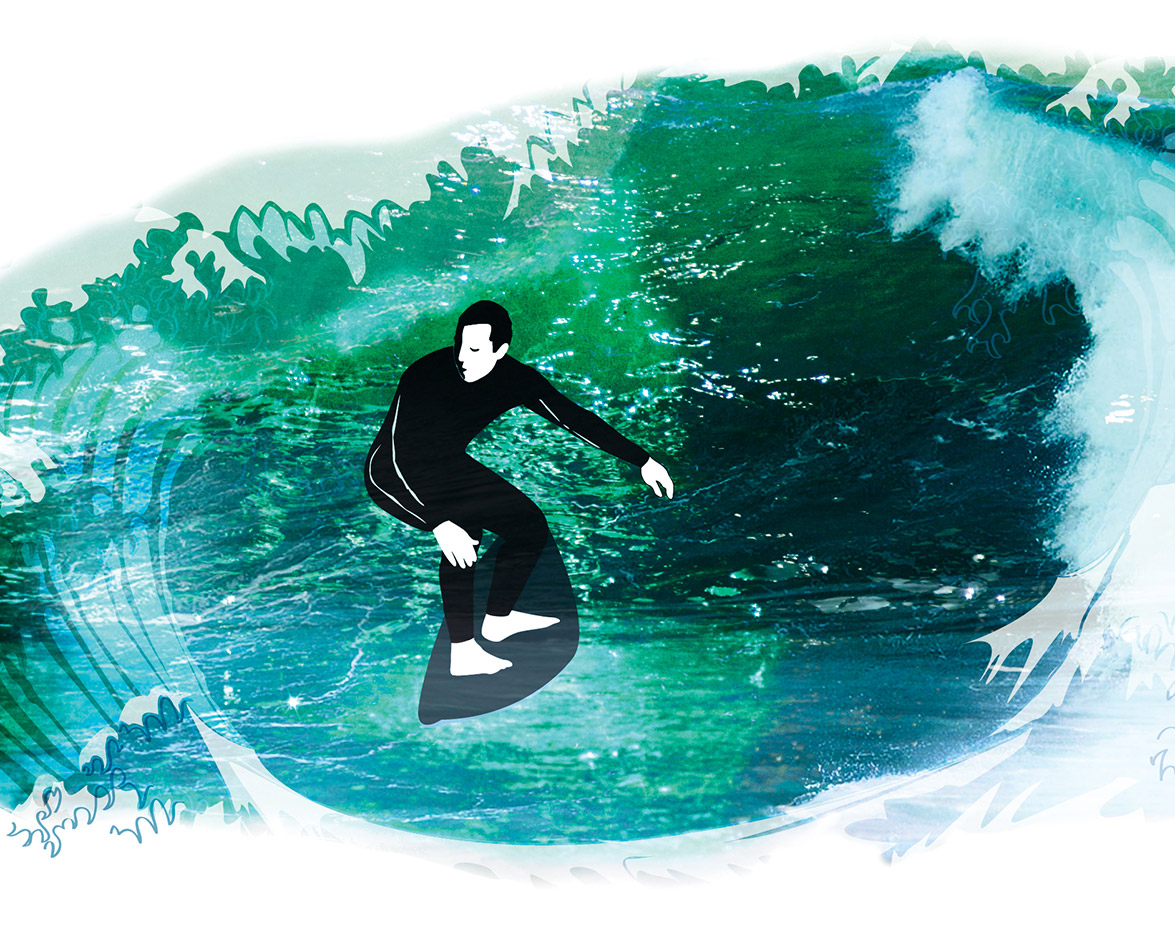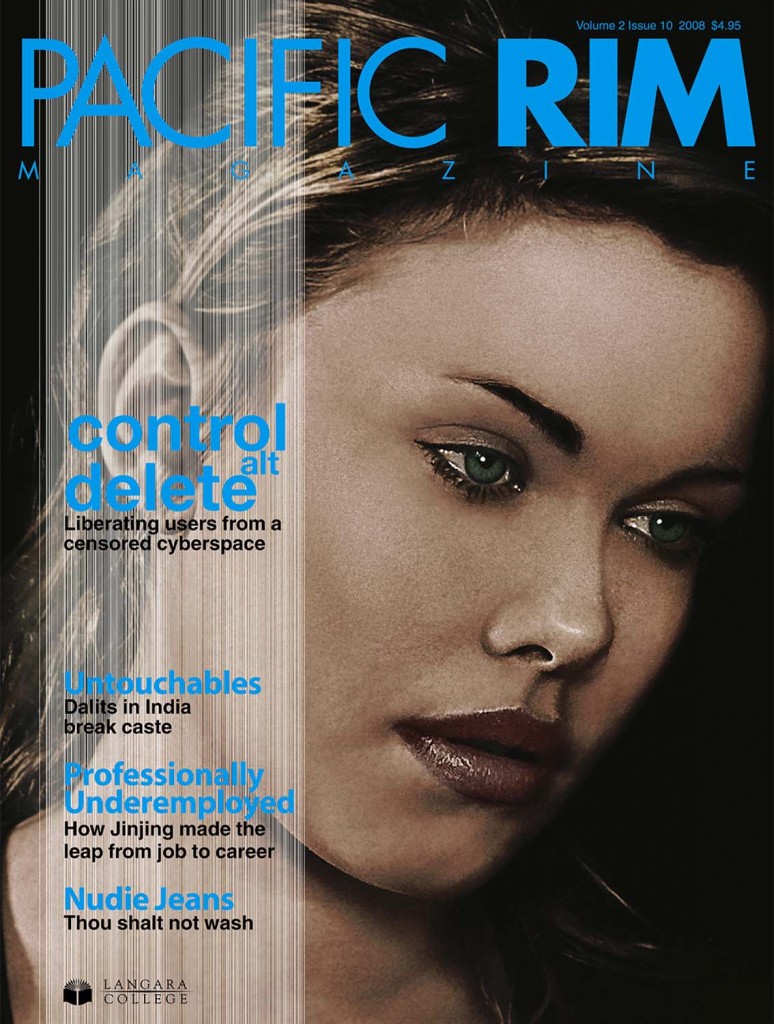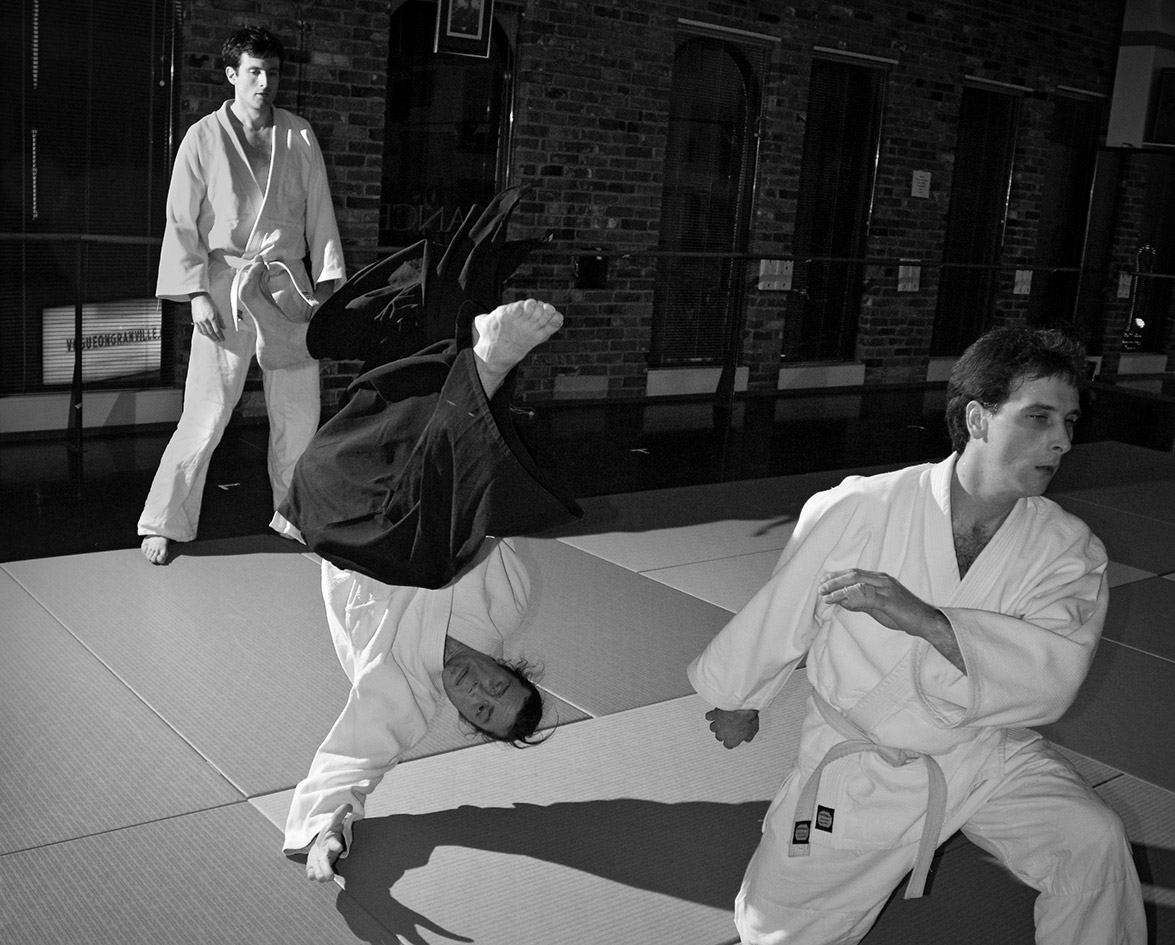So hot that Koba-san’s surfboard wax gets soft. But “it’s okay”… as long as he has enough money to live he doesn’t mind. He’s not at work after all—Koba-san lives and surfs in this world-renowned surf spot, on the island of Kyushu in Japan. Without a fixed address, Koba-san lives in his van having given up his professional career to surf.
Despite the great conditions, young people like Koba-san are not giving it all up for the quality of the surf; instead, they go to Miyazaki because they have difficulty reconciling themselves with Japan’s demanding work culture—brutally long days at the office and a lifelong commitment to a specialized career. The beach is an easy trade.
Vancouver filmmaker, Bryan Nykon documented the surfers’ lifestyle at Miyazaki and found that two types of surfers make up Miyazaki’s surfing sub-culture. The “weekend warriors” do their regular jobs, surf when they can and bank holiday time to go on international surf trips and ride the waves all weekend long. The other group is what Nykon calls “the real deal.” Like Koba-san, they have “completely dropped out of society to live the life.” They work menial jobs to scrape by, and become “one with the ocean.”
A Typical Freeter
Koba-san certainly looks the part. His face is young but has been weathered by the sun and salt. His manner is soft and polite, but there is an excitement that overtakes his demeanour when asked about his life as a surfer. In fact, during his entire conversation with Nykon, Koba-san is noticeably distracted by the surf in the background. It’s telling. “There are all kinds of people in the world. If there’s someone who litters, there’s someone to pick it up. I’m a person who picks litter up. That’s my way of thinking.”
Yet the willingness to leave your family and career for the beach is certainly not a typical Japanese attitude. And despite having given up his family life, Koba-san recognizes his social role and work responsibilities. In this regard, his thinking is quite Japanese.
Everyday Koba-san goes to his day job at a restaurant where he makes $1200 Canadian (CAD) per month—well below the poverty line in Japan.“ I don’t need a lot of money. For showers, I go to health spas or I go to a drop-in gym or something. But I’m in the ocean everyday, and rinse with water, so my body is clean!”
Nykon gets the sense that giving up traditional Japanese life for the ocean is more of a conscious rebellion again the rigidity of Japanese society than anything else. The rules, expectations, pressure. In fact, of the surfers he had met, many had severed ties with their families or were shamefully disowned, in their pursuit of alternative ways of life.
The hardworking, dedicated surfer is certainly not in keeping with the typical portrait of a Canadian drop-out. In western culture, people who quit their jobs and reject convention are stereotypically seen as lazy and unproductive; however, this is not the case at Miyazaki.
These surfers have a strong work ethic. They work hard at their jobs; they play hard and strive to become the best surfers they can be. Their attitude toward surfing has intensity, and an obsessiveness that you would expect to find in an executive boardroom. So wagering a simple guess at why young people would risk losing their friends, family and future for some sun, sand and surf would not do them any justice. Like many social phenomenon, the reasons can be complex and do not encapsulate everyone’s motivations.
A Happy Kokoro Is A Brave Kokoro
But it’s fair to note that there is something stirring in the soul (or kokoro) of many Japanese young people. It takes a measure of bravery and self-determination to be able to choose the road-less-travelled.
While Koba-san’s laissez-faire attitude may be the envy of many, some damning mental health statistics are coming out of Japan. Among industrialized nations, Japan has one of the highest suicide rates. A disturbed kokoro, worries about money and inability to cope with the onerous work expectations in Japan often results in deep shame, and desperate acts. In 2005 alone, over 32,000 Japanese committed suicide—half of which were unemployed, 72% of them men.
Another phenomenon in reaction to Japan’s strict work culture is the rising class of freeters. Coined in the late 1980s, the term describes young Japanese people—usually between the ages of 15–34—who are either unemployed or underemployed, did not start their careers after high school or university and often live as ‘parasite singles’ with their parents. The word freeter is most likely a hybrid of the English word free and the German word arbeiter (worker).
The hardworking, dedicated surfer is certainly not in keeping with the typical portrait of a Canadian drop-out. In western culture, people who quit their jobs and reject convention are stereotypically seen as lazy and unproductive; however, this is not the case at Miyazaki.
While the terminology is less important, the freeter reality is creating a ripple effect in Japanese society. According to a survey conducted by the Japan Institute of Labor in 1987, 800,000 freeters were living in Japan. Come 2002 and their numbers have grown to almost two million—roughly three per cent of Japan’s working population. At this rate, there could be some ten million freeters in Japan in the next six years. Staggering finds, given that freeters earn less than $1300 CAD per month and work a mere 4.9 days per week.
Even still, people who are working full-time are not happy and are demanding better conditions. Japan’s labour ministry is drafting a bill in order to shorten the working week—likely in reaction to the growing discontent of people both in and out of Japan’s workforce.
In the meantime, Koba-san continues to surf everyday, and Japan’s economic gears grind on.











